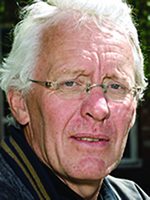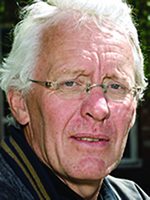2011 Research Award Recipient
Principle Investigator: Lars Agréus MD, PhD
Professor and Chair
Center for Family and Community Medicine
Department of Neurobiology, Care Sciences and Society
Karolinska Institutet/Stockholm County Council
Dr. Lars Agréus has been a professor of family medicine since 2007. The focus of his research is gastroenterology in primary care. Since September 2009, he has been head of the Center for Family and Community Medicine at Karolinska Institutet, Stockholm, Sweden.
Professor Agréus began his research career in 1987 at the Department of Family Medicine, Uppsala University, Sweden. In 1993, he defended his doctoral dissertation, “The Abdominal Symptom Study.” He spent a postdoctoral year at the University of Sydney in Australia studying associations between the quality of doctors’ consultations and the outcome of dyspepsia. Subsequently, he served as a senior lecturer in family medicine at Uppsala University. In 2000, he accepted a position as a senior lecturer and researcher at the Center for Family and Community Medicine in Stockholm.
For the past decade, Professor Agréus has focused on population-based endoscopy studies. During this time, he has developed an international network of collaborators from the fields of gastroenterology, pathology, microbiology, genetics, and psychoneuroimmunology. An example of their work is the Kalixanda Study, an upper endoscopy study that included endoscopies with biopsies, blood tests, and supplementary questionnaires in a random sample of 1001 adults. The Kalixanda Study has resulted in three PhD dissertations and 19 scientific publications so far; follow-up is still underway. Professor Agréus and his research group have also completed a colonoscopy study that included 746 randomly selected adult volunteers. The first articles about this study are in the pipeline for publication.
Professor Agréus has published approximately 60 scientific articles, reviews, and editorials in peer-reviewed journals and has contributed abstracts to or given lectures at numerous scientific meetings in the field of gastroenterology. He has been on the board of the European Society for Primary Care since its establishment in 1996 and now serves as the society’s president. Professor Agréus is a member of the Swedish Gastrointestinal Society and the Swedish Primary Care Society, and is a fellow of the American Gastrointestinal Association.
Lars Agréus is also a dedicated rural general practitioner. He has served the same rural district since 1981, and is a member of both national and international rural medicine societies.
Functional dyspepsia and functional heartburn: Natural history of symptoms in the general population and validity of Rome III upper gastrointestinal diagnostic criteria
Background: Functional gastrointestinal disorders (FGIDs) are common and usually life-long conditions that affect quality of life. Symptoms may fluctuate over time. However, only a minority of people with symptoms seek health care. A better understanding of the long-term natural history of FGIDs requires population-based studies with years or even decades of follow-up. Moreover, Rome III definitions of upper FGIDs have become the diagnostic standard but have never been validated by esophagogastroduodenoscopy (EGD) in non-patients.
Aims: First, to study the natural history of FGIDs, especially functional heartburn (FH) and functional dyspepsia (FD) over 23 years. Second, to validate the Rome III criteria for upper FGIDs using EGD with biopsies to rule out organic causes. To achieve these aims, we will use true population-based data with a high participation rate and robust non-response data not biased by healthcare-seeking behavior.
Methods: The study builds on a series of postal surveys of abdominal/gastrointestinal symptoms in the same adult random population sample (n ≅ 1400) in the municipality of Östhammar, Sweden, conducted in 1988, 1989, 1995, and (in a subsample) in 1996, using the validated Abdominal Symptom Questionnaire (ASQ). Residents of the municipality ≅ 20 years and born on the 3rd, 12th, or 24th of each month plus surviving members of the original study population who have moved elsewhere in Sweden will be mailed a further ASQ in spring 2011. Responders to the spring survey aged 20 to 80 years will be invited to endoscopy with biopsies in fall 2011. At the EGD visit, participants (n ≅ 800) will provide medical history; respond to the Rome III questionnaire, the ASQ, and other questionnaires; and provide a blood sample for biomarker analysis. Non-response studies will be performed for each study step.

